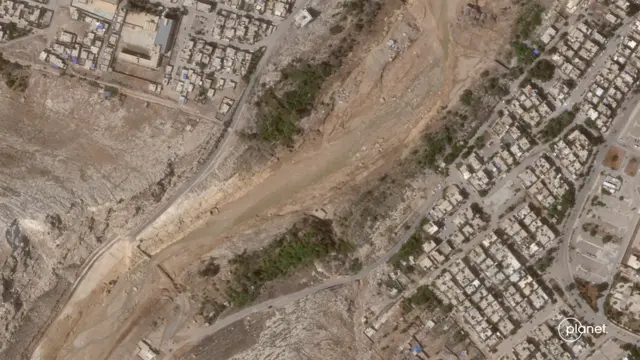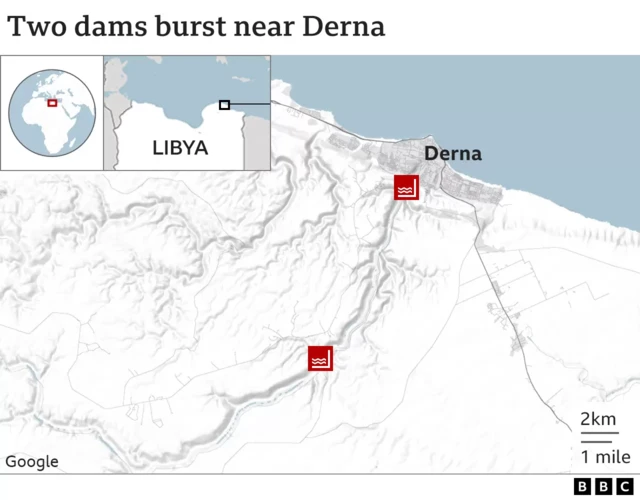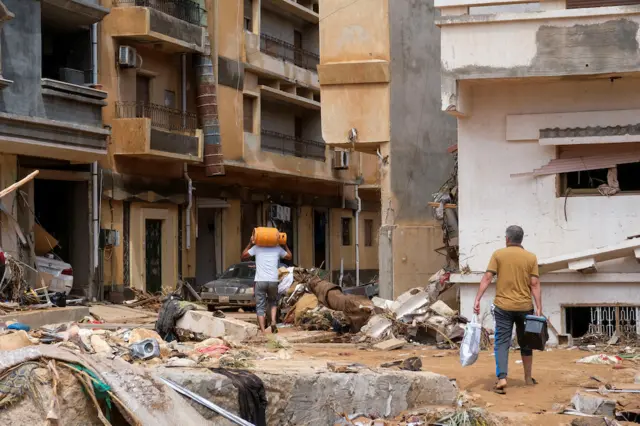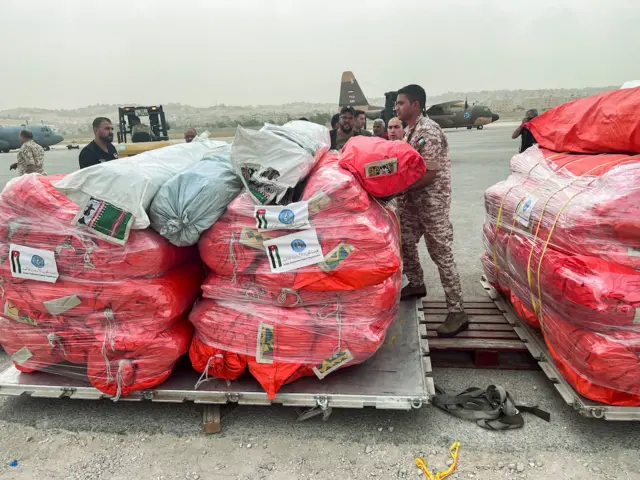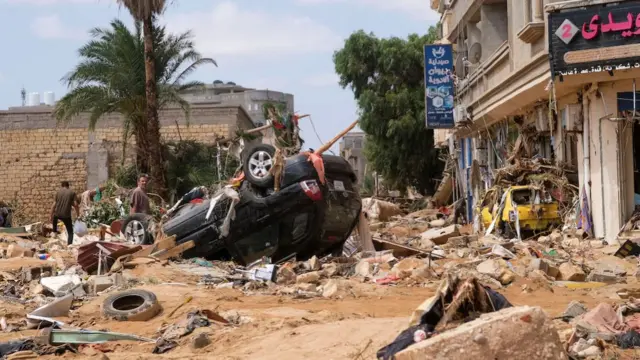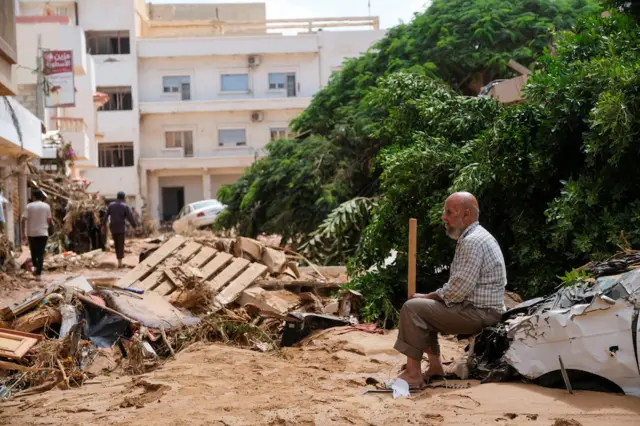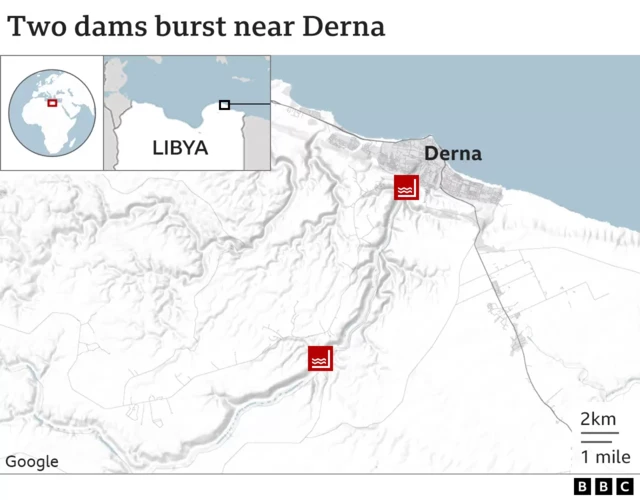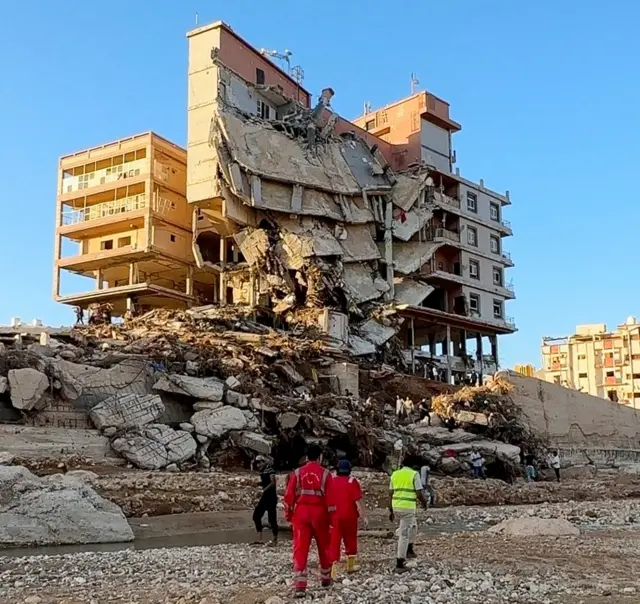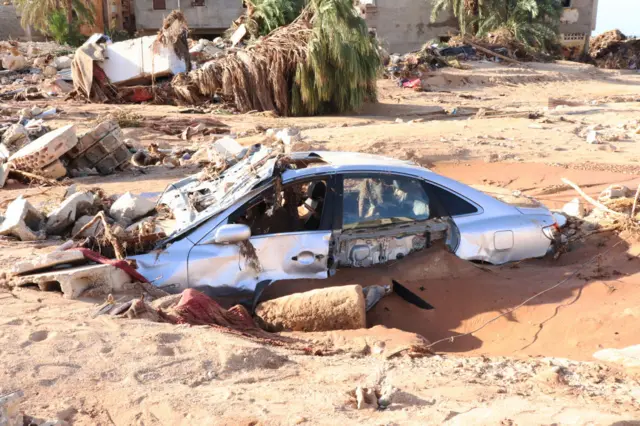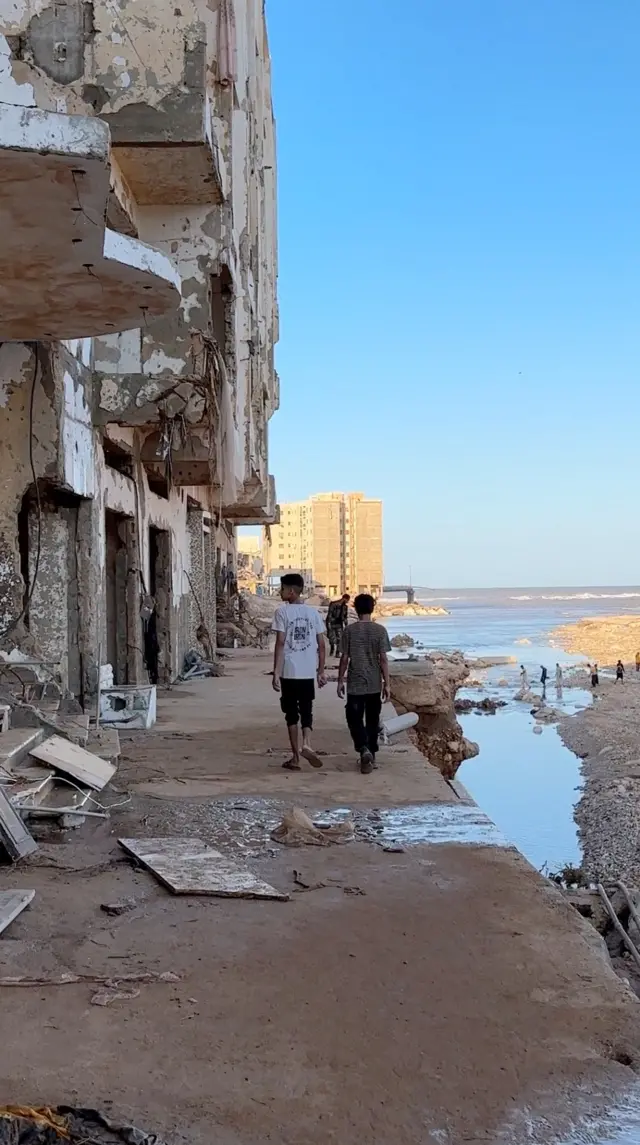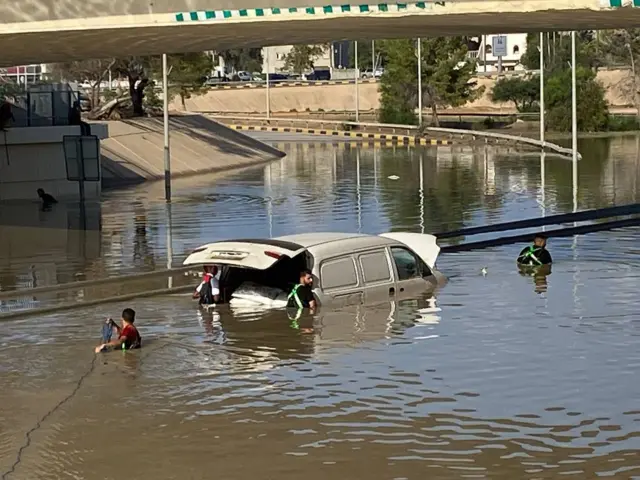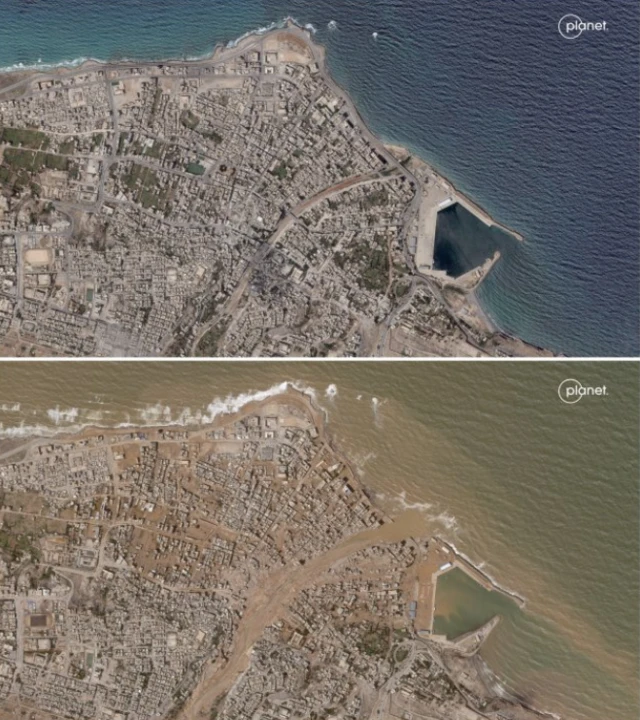Derna has been neglected for decades - doctorpublished at 12:52 BST 13 September 2023
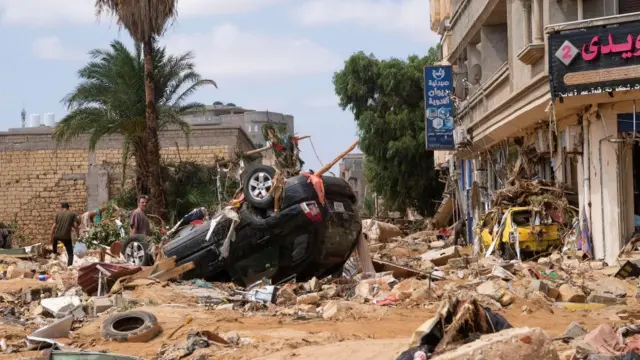 Image source, Reuters
Image source, ReutersDerna was deluged with water after two dams burst during Storm Daniel
Much of the tragedy unfolding in Derna is down to human negligence, says a Libyan doctor who has relatives missing in the port city.
The problems go a long way back to the 42-year rule of Muammar Gaddafi, explains Dr Hani Shennib, who is currently based in the US.
“Derna is one city that has been constantly defiant to Gaddafi so he punished it very badly. The city was eroded progressively - no schools and the hospitals were in very poor conditions,” he tells BBC Newsday.
This neglect continued after the 2011 revolution, when Gaddafi was killed and the country descended into political turmoil that continues to this day.
Prior to Storm Daniel, Derna did not have "one single hospital that was functioning", explained the medic, who is also president of National Council of US Libya Relations.
A house with five bedrooms had been rented and was being used as a makeshift hospital, he says.
